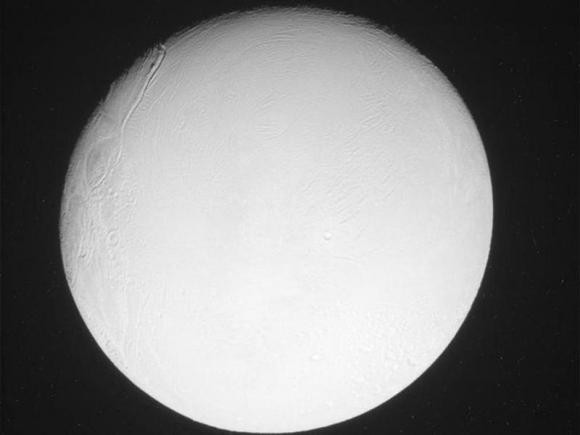NASA researchers have found out that one of Saturn's moons can potentially be a host for life forms.
Scientists have found the first proof that there might be hydrothermal activity in the underground ocean of the icy moon named as "Enceladus," according to Frontline Desk.
The activity means that Saturn's moon has the potential to sustain life.
"The areas in our solar system where extreme environments occur in which life might exist may bring us closer to answering the question: are we alone in the universe," said NASA Science Mission Directorate associate administrator John Grunsfeld.
Since 2005, Enceladus has caught the interest of scientists after water vapor was seen on its surface via the Cassini spacecraft.
Initially, scientists had difficulty in looking for proof of hydrothermal activity due to Enceladus' icy surface that is more than 25 miles thick.
However, microscopic rocks sized at around two to 8 nanometers that were tossed out into space were studied by a group of researchers from the University of Colorado's Laboratory for Atmospheric and Space Physics. The rocks were gathered by NASA's cosmic dust analyzer from its Cassini spacecraft.
The small grains are similar to the Earth's sand and quartz, which are usually generated by hydrothermal activity, indicating that Enceladus, the 6th biggest out of Saturn's moons, has an active hydrothermal system, according to Voxxi.
The authors of the study studied the data for four years through experiments and computer simulations before coming into a conclusion that the evidence shows there could be life on Enceladus.
In the past years, the scientists have known that the Saturn's moon had water, but the recent discovery shows that minerals and heat are present-two of the most basic ingredients to sustain life.



























